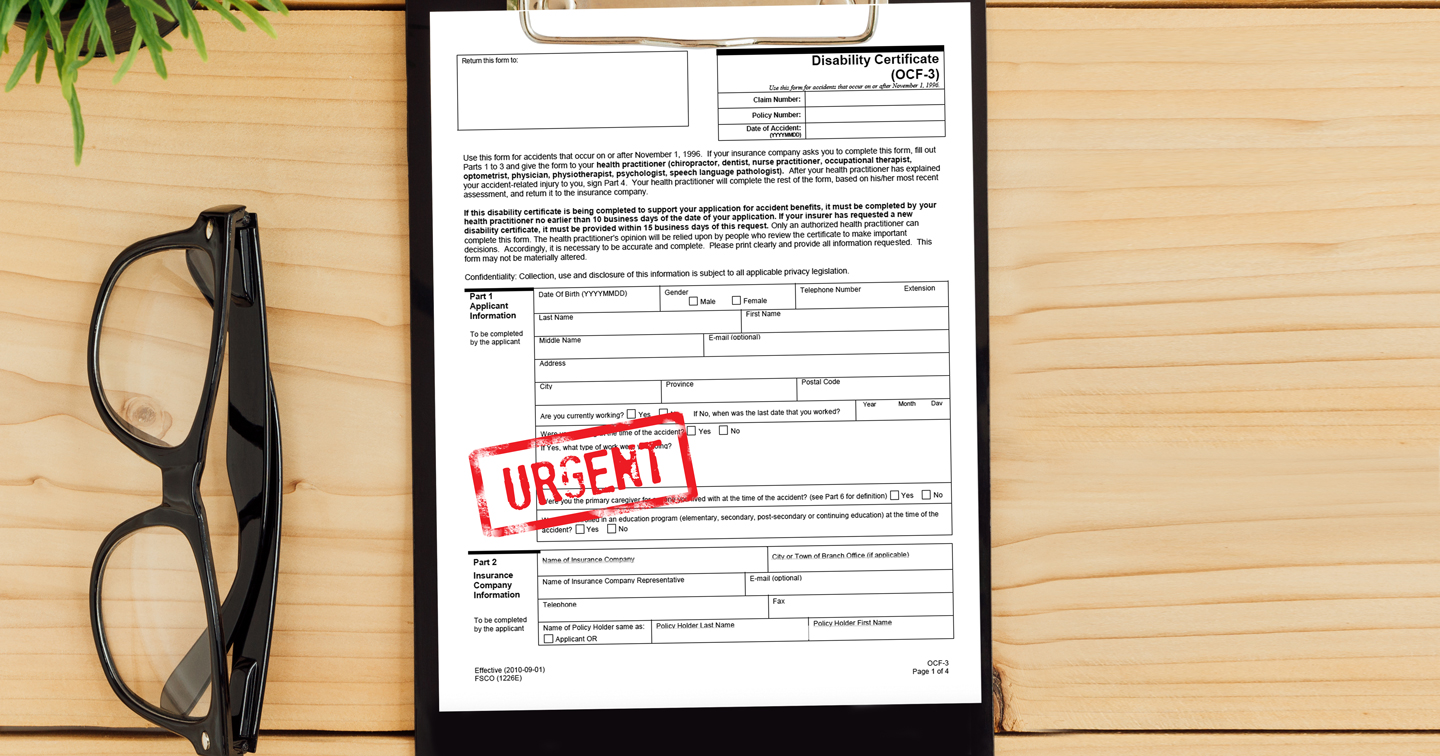Crucial to Submit Disability Certificate (OCF-3) Early and Accurately
Author(s): Darcy R. Merkur
March 3, 2017

Why it is NOW crucial to complete and submit a Disability Certificate (OCF-3) ASAP – An important message for hospital providers.
Traditionally, we have explained to hospital providers that while it was best for patients to submit their Accident Benefit documents (i.e. Application and Disability Certificate) to their accident benefit insurer ASAP, there was no serious consequence associated with a delayed submission of these forms.
However, recently accident benefit insurers have been relying on a provision in the governing legislation that allows insurers to avoid ever paying certain benefits (like vital Income Replacement Benefits) for the period before they have received a completed Disability Certificate (a completed OCF-3).
Section 36(3) of the SABS (Statutory Accident Benefits Schedule) says just that–that: “An applicant who fails to submit a completed disability certificate is not entitled to a specified benefit for any period before the completed disability certificate is submitted.”
So, we wanted to notify you that it is more important than ever to supply patients with a completed Disability Certificate (OCF-3) ASAP… and to help make sure that patients engage an experienced and qualified personal injury lawyer ASAP to ensure their documents are all properly submitted.
We note that income replacement benefits aren’t, by law, payable for the first week after a motor vehicle accident so the rush is really to make sure the Disability Certificate is submitted by the end of that first week, wherever possible.
Of course, we have a host of compelling arguments to convince insurers that their position is wrong and that they still must pay benefits even for the period before the Disability Certificate is submitted, but because insurers can withhold paying benefits until any such dispute is addressed it is best practice to get the OCF-3 submitted ASAP.
Key Tips for Completing a Disability Certificate (OCF-3):
- Do not describe the accident in any details (all that is needed is: ‘pedestrian hit by a car’ or ‘passenger in vehicle involved in collision’ or ‘driving and made contact with another vehicle’- (all too often negative details are inserted that haunt claims and this is just a formality to ensure the injuries were caused in a car accident as opposed to a fall, etc.)
- If there are whiplash symptoms, list those last and focus/highlight any fractures and/or any concussion (to ensure the claim is NOT thrown into the Minor Injury Guideline)
- Ensure that the questions about ‘ability to work’ and about ‘complete inability to carry on a normal life’ are completed properly to confirm the patient is not currently (i.e. as of the date the form is being completed and signed) able to work or carry on a normal life (as this question qualifies a claimant for income replacement benefits or non-earner benefits). We note that Disability Certificates completed while someone is an in-patient at a hospital should invariably confirm that, “YES”, the person does indeed, at that time, “suffer a complete inability to carry on a normal life”.
Should you have any questions, please feel free to call or email trauma lawyer Darcy Merkur.
Related Posts for Accident Benefits Forms:
Share this








